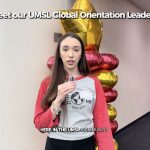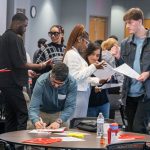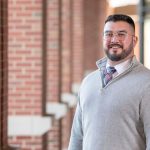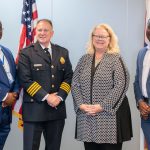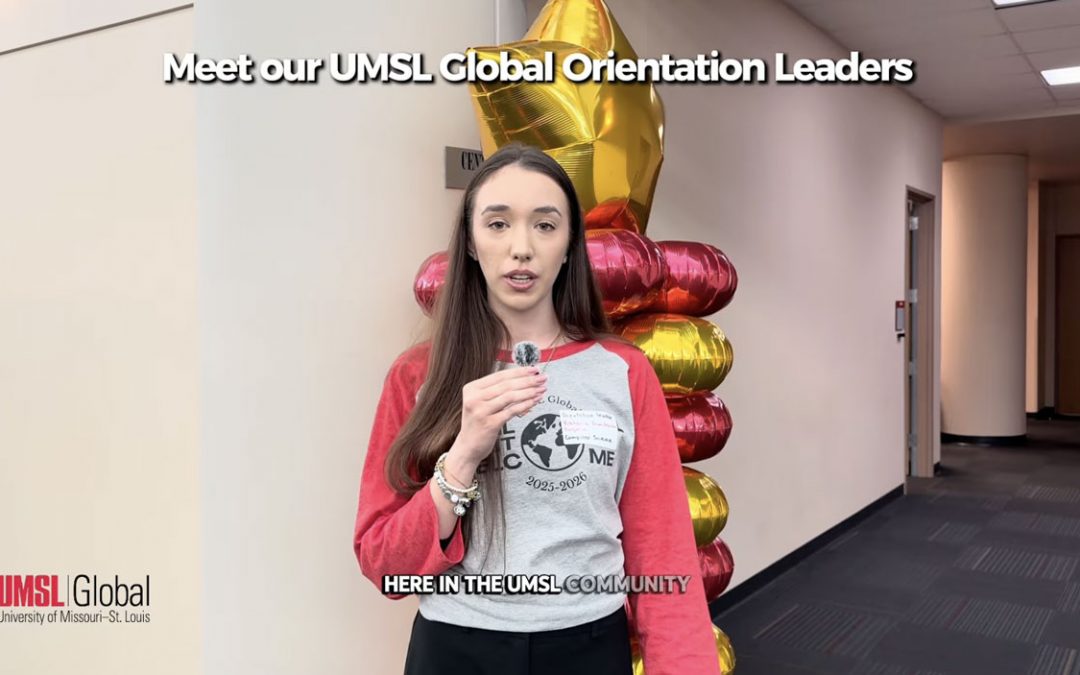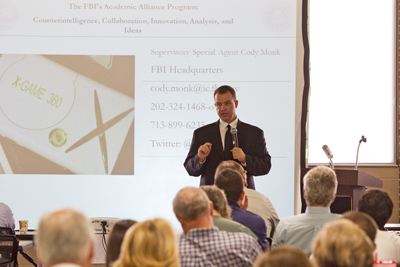
FBI Supervisory Special Agent Cody Monk presents at the FBI Academic Alliance Seminar last week at UMSL. The Center for Nanoscience held the event. (Photo by August Jennewein)
A case of a university professor prosecuted for transferring controlled defense technology to foreign national graduate students was used as a cautionary tale during a recent FBI Academic Alliance Seminar presented by the Center for Nanoscience at the University of Missouri–St. Louis.
J. Reece Roth, a former engineering professor at the University of Tennessee in Knoxville, was found guilty of allowing two foreign national students, one from China and the other from Iran, access to sensitive data and equipment from a U.S. Air Force contract. His actions violated the Arms Export Control Act, which prohibits the export of defense-related materials to a foreign national or nation. Roth is currently serving a four-year prison term.
More than 150 private sector employees and faculty and staff from UMSL and other universities attended the seminar. It brought them together with local and federal law enforcement agents from Washington, D.C., Missouri, Illinois and Kansas to discuss security issues relevant to colleges and universities. The topics included conducting business overseas, research technology protection and cyber safety.
Nasser Arshadi, vice provost for research at UMSL, welcomed the informational seminar.
“In this country, through universities and the private sector, we invest tremendous amounts of money and time on developing technologies that matter a lot to us, and protecting such technologies is quite important,” Arshadi said. “Protecting intellectual property is a significant challenge.”
The takeaway that Supervisory Special Agent Cody Monk wanted the audience to get was that they need to call the FBI if they suspect some wrongdoing and “get ahead of it.”
“If you think there is a violation, we’ll come in and look at it,” he said. “We’re not going to hammer you. Our goal is for this stuff not to walk out of your university and end up in China.”
In 2005, the FBI created the National Security Higher Education Advisory Board composed of 19 university presidents and chancellors. They meet regularly to discuss national security matters that intersect with higher education.



